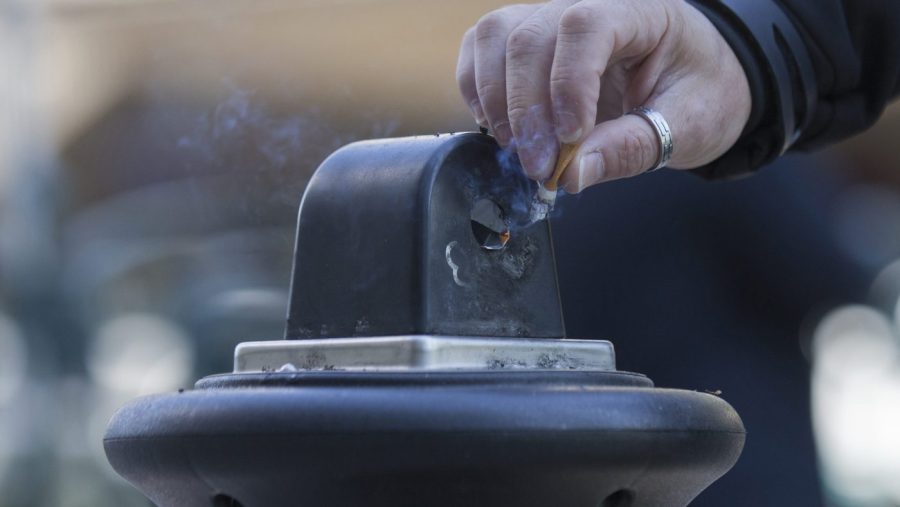The tobacco industry’s influence on public health policymaking in the U.S. is growing according to the latest report by the anti-smoking organization Action on Smoking & Health (ASH).
ASH’s Tobacco Industry Interference Index 2025, provided first to The Hill, found that the U.S. scored an 89 out of 100 on the Global Tobacco Industry Interference Index, a survey used to measure how governments respond the interference by the tobacco industry.
The U.S.’s score ranked it 98 out of 100 surveyed countries.
“The scoring is based on 20 key indicators around article 5.3 [of the World Health Organization’s Framework Convention on Tobacco Control] which is the article that basically states that, you know, public health needs to be protected from the vested interests of the tobacco industry,” said Nichelle Gray-Lkhagvadorj, manager of engagement and special programs at ASH and lead author of the report.
The survey encompasses categories including transparency; conflicts of interest; interaction between the government and the tobacco industry; and awareness.
“Eighty-nine is a pretty terrible score, because it’s 89 out of 100 and, you know, the US is set to be one of the worst countries again this year in our reporting,” Gray-Lkhagvadorj added.
This score is notable as the U.S. is not particularly notable in terms of its tobacco use, ranking only 52 globally according to the CIA. This places it behind countries like China, Spain and Russia.
Where the U.S. scores poorly is transparency, receiving a four out of five in this category.
“The government does not publicly disclose meetings/ interactions with the tobacco industry in cases where such interactions are strictly necessary for regulation,” noted the report.
Chris Bostic, ASH policy director of action, noted that the tobacco industry’s involvement in the federal government probably doesn’t differ significant when compared to other industries, but said the industry’s core product is what sets it apart.
“Countries ought to treat the tobacco industry differently because their product kills when used as intended. It shouldn’t be treated as just a normal industry,” Bostic told The Hill.
In the past year, there has been a 24 percent jump in lobbying registrations by the tobacco industry. According to Bostic, this is likely being spurred by anti-tobacco legislative actions.
“This fear for the other tobacco industry is the growing number of jurisdictions that are passing tobacco end game laws, and these are laws that are phasing out the sale of commercial tobacco entirely,” Bostic said. “From zero a few years ago, we’re up to 23 jurisdictions that have done that in the U.S. And so that’s a that’s a death sentence for the tobacco industry.”
To combat the growing interference, ASH recommended raising awareness of the WHO’s Framework Convention on Tobacco Control, increasing the number of years executive branch appointees before working as lobbyists and that more employees be included in this category.
“Ever since they signed it in 2004 HHS has said that we’re in full compliance with the FCTC, and that’s just demonstrably false,” said Bostic. “And I’m not blaming any single administration. Every administration has said it, and they’ve all been wrong about that. And it’s a terrible shame because it’s the things that are in the FCTC are the blueprint for reducing death and disease from from tobacco.”

